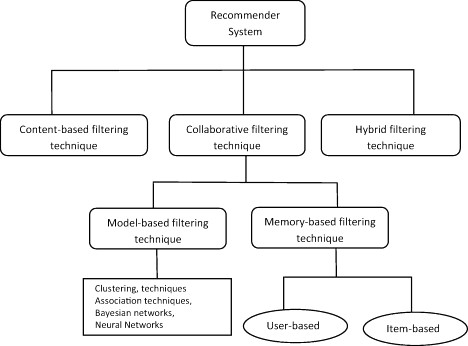Recommender Systems In today’s digital landscape, the realm of online content and information is vast and ever-expanding. As internet users navigate through this expansive sea of data, the role of Recommender Systems stands out as a beacon of personalized guidance. These systems have evolved into indispensable tools, reshaping user experiences across various online platforms.

Understanding Recommender Systems
Recommender Systems are algorithm-based technologies that analyze user data to predict and suggest items or content that might interest them. They operate on diverse platforms, from e-commerce sites to streaming services and social media networks. These systems leverage machine learning, collaborative filtering, and content-based filtering to comprehend user preferences, behaviors, and patterns.
Types of Recommender Systems
Collaborative Filtering:
This method recommends items based on user interactions and similarities among users. It identifies patterns by analyzing users’ behaviors and preferences.
Content-Based Filtering:
This approach recommends items by evaluating their attributes and matching them to the user’s preferences. It focuses on the content’s intrinsic characteristics.
Hybrid Systems:
Combining collaborative and content-based filtering, hybrid systems offer enhanced accuracy by leveraging the strengths of both approaches.
Applications Across Industries
E-Commerce:
In the realm of e-commerce, Recommender Systems has significantly influenced purchasing behavior. By analyzing past purchases, browsing history, and similar user profiles, these systems suggest products tailored to individual preferences, ultimately boosting sales and enhancing user satisfaction.
Streaming Services:
Platforms like Netflix and Spotify owe a large part of their success to Recommender Systems. These systems analyze viewing or listening habits to recommend movies, shows, or music, ensuring a personalized and engaging experience for users.
Social Media Platforms:
From Facebook to Instagram, social media giants employ Recommender Systems to curate content on users’ feeds. These systems predict user preferences, suggest relevant posts, friends, or pages, and optimize user engagement and retention.
The Impact on User Experience
Recommender Systems has revolutionized user experiences by simplifying decision-making processes and offering tailored content, products, or services. By presenting users with options aligned with their interests, these systems enhance satisfaction, engagement, and overall usability of platforms.
Challenges and Future Developments
While Recommender Systems has made remarkable strides, challenges persist. Issues related to privacy, bias, and over-personalization demand ongoing attention and refinement. Moreover, advancements in artificial intelligence and deep learning will likely shape the future, improving the accuracy and efficiency of these systems.
Conclusion
In a digital landscape inundated with information, Recommender Systems emerge as guiding forces, streamlining user experiences across diverse platforms. Their ability to predict and suggest personalized content or products elevates user satisfaction and engagement, making them a cornerstone of modern online interactions.
